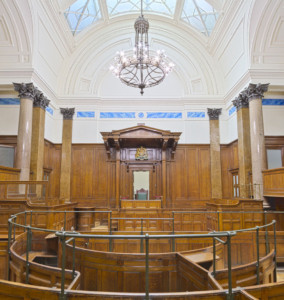The whistleblower who exposed the healthcare fraud occurring at Theranos Inc. reports a vast scheme used to manipulate lab tests and quality-control checks. Tyler Shultz is the grandson of George P. Shultz, the former Secretary of State during Reagan presidency who directed Theranos until 2012. In April 2014, after working for eight months, Tyler found that the company employed a widespread illegal scheme to conceal many failures within their own laboratory test devices. He exposed the fraud to Elizabeth Holmes, the founder of the corporation, who forwarded his email to the company’s President Sunny Balwani. The chief executive’s answer was unexpectedly dismissive, however. Not only he belittled Shultz’s knowledge in mathematics and lab science, but he even remarked how he personally answered only because Tyler was Mr. Shultz’s grandson. Later that day the younger Shultz quit his job in Palo Alto, while Holmes called his grandfather to warn him about his sibling’s unwanted attentions on Theranos’ dishonest policies.

What Tyler found was, indeed, concerning. The company patented a pain-free blood testing machine called Edison, that was widely used to check if a subject suffered from many conditions, including several sexually-transmitted infectious diseases. The device, however, frequently failed quality control tests because of the unreliability of the results it provided. Although Holmes claimed that the test sensitivity was able to detect diseases with a 95 percent chance, when Shultz tested it personally during a reported experiment, its actual sensitivity ranged from 65 to 80 percent. In other words, up to 35 percent of the infected subjects who used the Edison device would risk being deceived into believing they were disease-free. Tyler’s suspects were confirmed in March 2016, when federal health regulators banned Holmes from the blood-testing business for two whole years for failing to address several major issues at its laboratory in California.
According to Shultz’s whistleblower claim, the company perpetrated its medical fraud by manipulating the data obtained by the proficiency testing used to ensure the device’s accuracy. After he blew the whistle, though, he received several threats, including being closely followed by private investigators. He did not budge after the intimidation, however, and kept going with his legal action although the strained relationship with his 95-years-old grandfather will be never repaired.
Article written by: Dr. Claudio Butticè, Pharm.D.
Do you have a valid claim?
If you witnessed any widespread suspicious activity within your workplace, you might have a chance of becoming a whistleblower by reporting an ongoing fraudulent scheme. However, to increase your chances of success, you must be sure to back up your claim with substantial evidence or privileged information.
A Quick Whistleblower Checklist
Is the fraudulent scheme widespread enough?
Has the fraud been perpetuated for years or involves large sums of money?
Do you possess any physical evidence of the fraud (documents, forged signatures)?
Do you have access to privileged information which may help our investigators?
Do you work as an insider within the company perpetrating the fraud?
Did you witness any ongoing illegal behavior within your workplace?
Have you been forced into taking part in any suspicious corporate activity?




